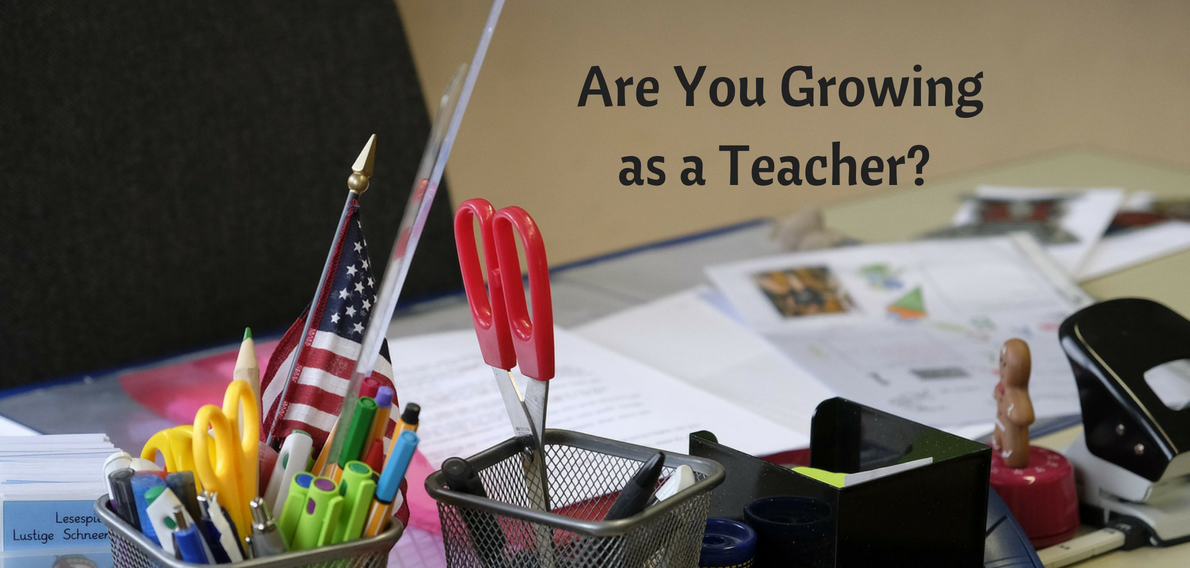 Most teachers understand and appreciate the need for ongoing professional development. Whether you are new to the field or have been teaching for a while, you will want and need to keep learning new skills, strategies and best practices. Research, and particularly research concerning the brain and how we learn, is constantly revising what we thought we knew about teaching and learning. Professional development helps us keep up to speed.
Most teachers understand and appreciate the need for ongoing professional development. Whether you are new to the field or have been teaching for a while, you will want and need to keep learning new skills, strategies and best practices. Research, and particularly research concerning the brain and how we learn, is constantly revising what we thought we knew about teaching and learning. Professional development helps us keep up to speed.
There are four kinds of professional development you might experience. We think all are worthwhile. Some will be “given” to you, and others you will have to initiate. Let’s take a look:
Whole district P.D.
Most districts provide some professional development for all teachers. This often occurs at the beginning or end of the school year or on in-service days. It is built around the district’s initiatives and is often general so that it applies to everyone. It is good to have all teachers speak the same language and understand the same basic content. A weakness, however, is that because it is designed for an entire faculty, it is often not specific enough to help you with your needs in your classroom.
Professional Learning Communities or PLC’s
Many districts have adopted the PLC model. PLC’s are groups of teachers who work together to learn about a chosen topic. The group might read the same book or research a common problem. PLC’s, because they occur in a smaller group, offer more chance for discussion and for meeting individual needs. However, they may still meet around school wide initiatives and may not be focused on the needs of your classroom.
Graduate School
Many teachers return to a college or university in order to receive advanced degrees or to gain new certifications or endorsements. In most states, these courses are the ones most likely approved for licensure and as a bonus, may even help you move up on the pay scale. Grad school will help you to become more knowledgeable about education as a whole. Because it is often big picture focused, it may be less helpful for learning specific information that you need in your classroom. Once you obtain a graduate degree, it is important to realize that your learning as a teacher does not stop. There are always new things to learn.
Your own professional development plan.
This is arguably the most helpful to you because it is designed for, managed by and inspired by you. The best teachers are life- long learners who initiate the development that they need.
In order to plan for your own professional development, consider your strengths. How could you build on those strengths in order to take yourself to the next level? For example, if you run a successful reading workshop model, you could explore adding a math workshop model. If your students love hands-on projects, what new projects could you develop?
You will also want to explore the areas you are struggling with. We all have them. What would you like to improve? How could you get help? For example, if you struggle to get students to do their work, you could read a book or articles to help you learn about motivation. If assessment is your Achille’s heal, then you could learn some new formats and new ways of assessing.
Here are some ways to get the professional development you want and need:
Attend a workshop. You can ask your district to send you to a workshop, and if you can make the case for why it will help you in the classroom, it might be granted. Alternatively, if it is really important to you, it might be worth attending even if it is on your own dime.
Read a book. Search Amazon or educational book publishers such as Stenhouse, Corwin or Columbia Teachers’ College Press. There are many wonderful books written by teachers for teachers. There is likely a book for any educational learning you are interested in.
Do some research. Use your school’s databases, or Google Scholar and research articles for a topic of interest. The internet has made it easy to get information about anything with the click of a computer mouse.
Join a learning community. Your district may have smaller learning communities. The internet and social media also have many communities of teachers. There are communities for art teachers, or STEM or elementary reading, among others. There are also many general communities for teachers. Follow the Facebook group, get involved and ask questions.
Your professional development is your responsibility. Make the best of it and help yourself. No one cares more about your career than you do, and no one knows what you need more than you do. The best teachers we have ever known, without exception, are teachers who take the time to learn and grow in their profession.
Our best,


Leave a Reply